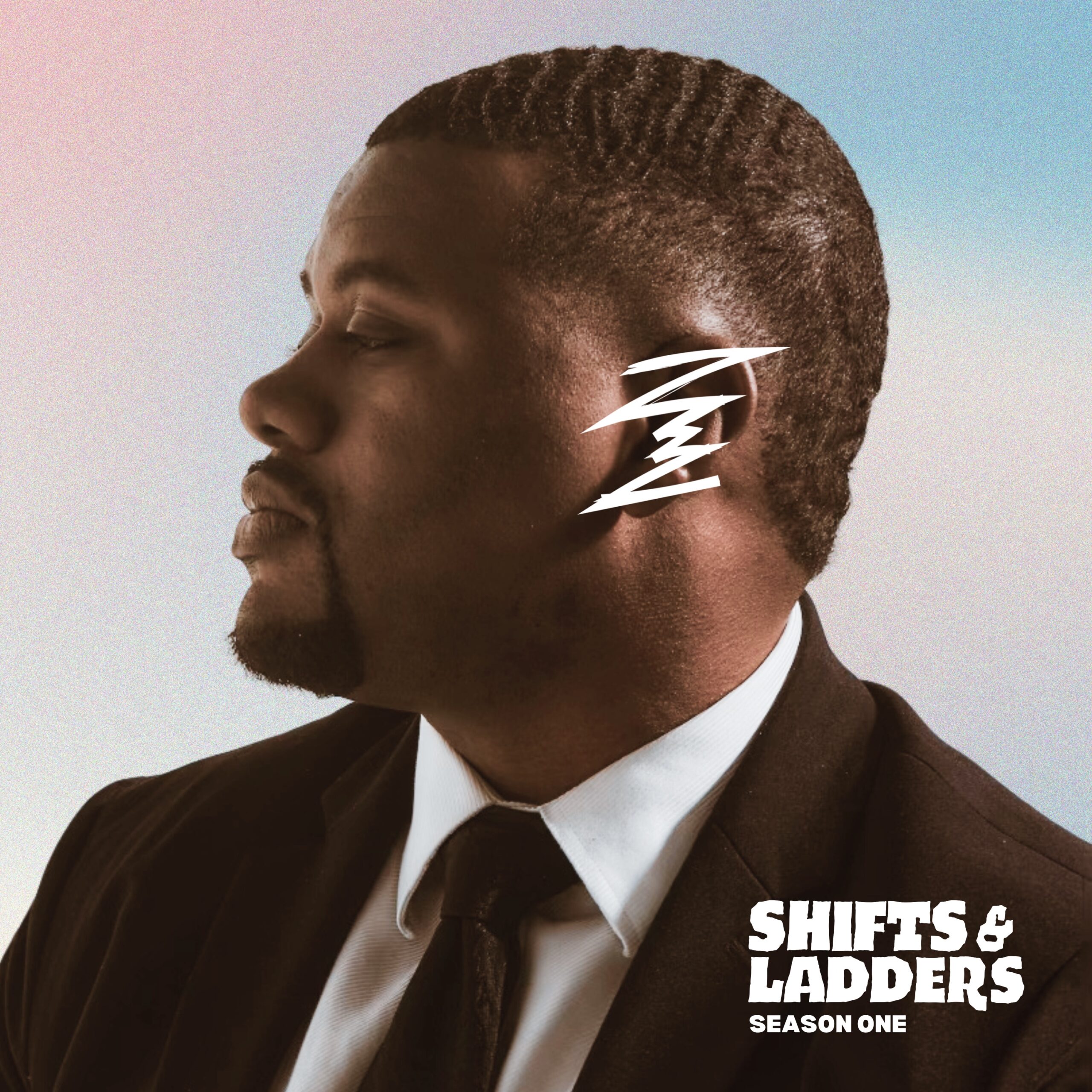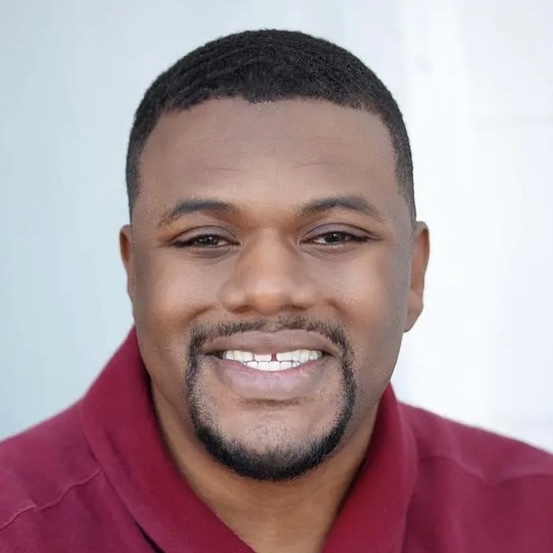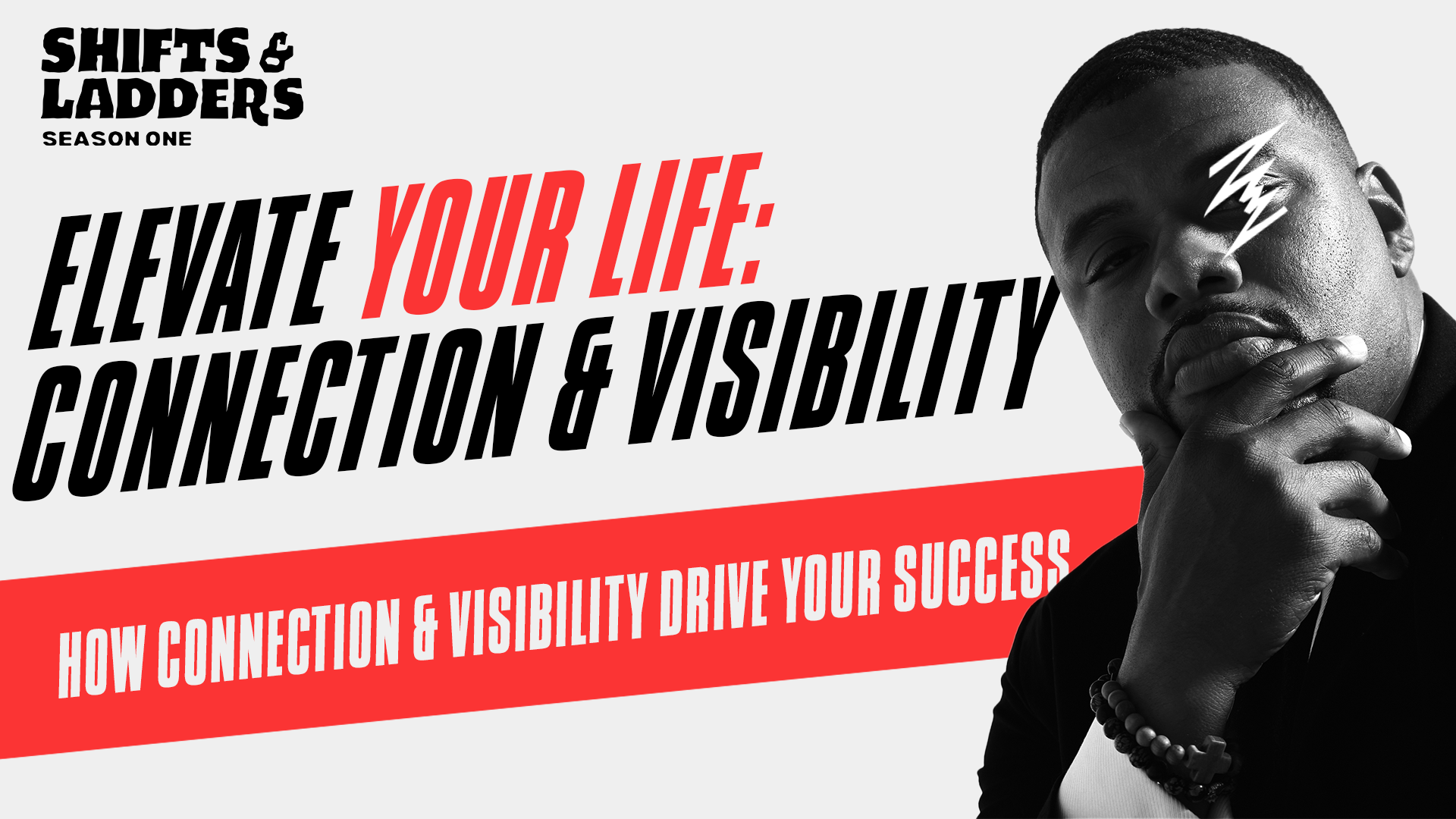Hope is an indicator that you need to move past your current situation. Hope is the evidence of that which you cannot see. Faith that you can get past whatever disappointment you’re facing and experience something better for your growth.
View Full Transcript
Episode Transcript
[00:00:00] This is the very thing that you are missing that can make a drastic change, not just in your present day, in your present time, but in your future.
[00:00:30] Ladies and gentlemen, welcome to shifts and lighters. You know who it is, it's Ryan Robinson. And I'm excited to talk about this topic that most people, particularly these, this, in this day and age, this time, actually struggle with.
[00:00:46] And it's the issue of hope. Oh, I hope. I hope. We all the time talk about hope in a new future. We think that a new president or a new world leader or a new way of, gosh, trying to think of some other things, more money can provide more hope that changes in the stock market can provide hope. You guys, this is the thing about hope, and I want to break this down because most of the time, where we place our hope is actually the most critical thing about it. And some characteristics of fate, of, excuse me. Of hope is hope is fragile.
[00:01:33] I'm just going to jump right into it. I can't I even go wait for it. I really just want to talk about this. Hope is fragile.
[00:01:41] And the idea of a future being better than your present time is so fragile because you could place it somewhere that can disappoint you, can hurt you, could damage you, and actually encourage you to never hope again. It's that fragile. Have you ever been disappointed in someone or in a particular outcome that was not favorable for you? Yeah. Well, yeah. It's because you have put your hope in something that cannot handle it. So this is the crazy thing. Not only is hope fragile, but hope is heavy.
[00:02:33] Hope is heavy. And there's only things, there's only a few things, actually. I believe there's only one thing or one person that can actually manage and handle the level of hope that you have in a future that you have yet to see.
[00:02:55] Okay, I'm gonna go to the Bible because I think the Bible has the best descriptions and understanding of not just what hope is, but a description understanding as to what hope unlocks for you. Okay. So we know that hope is a decision or an idea of a future that you haven't seen yet. So we always say we want to have hope open what? Hope in an outcome open a person. We hope. We hope. We hope things get better. We hope things get, we hope things improve.
[00:03:44] We always say hoping. We're hoping for something. I would argue, and an author actually argues this point named Doctor Henry Cloud that most of the time when we say that we are hoping, we are actually wishing for something to get better. Let me explain. Hoping has some kind of evidence, it has some kind of anchor that whether it be a little bit or a lot of it gives you something to hang on to for a future outcome. Okay. When you wish for something, think about you wishing, making a birthday wish, blowing your candles out. I'm going back to me being a kid because I don't blow out candles like that. At least I don't have birthday wishes. Okay?
[00:04:35] Wishes have no evidence of coming to pass.
[00:04:42] You say if you're a kid, if you're seven years old, you're like, all right, I wish that I can get new toys.
[00:04:51] You blow the candles out, you have no evidence that you're going to get new toys. It might be your birthday, but you don't know what toys you're going to get. Like, it doesn't have any basis, right? So if you're hoping that someone you care about gets better, you have to believe that there is something out there that can improve it.
[00:05:16] So if you have, and I'm gonna use my faith here as an example, if I believe that God is a healer, I have. I believe that there's evidence in the bible that can actually verify what I am believing for. Therefore I have hope because it was done then, I believe it could be done now. Now this is the other piece of it.
[00:05:42] Hope does not say or does not mean what I'm hoping and believing for will happen just because I hoped for it.
[00:05:54] Okay?
[00:05:55] I believe that God has his ultimate will in a lot of things, in everything.
[00:06:00] So I can believe, I can believe I can have hope for it, but that doesn't always mean it's going to come to pass.
[00:06:12] But what I do believe is that based on some previous evidence of someone being healed, or my neighbor being healed, or a friend of mine recovering quickly from an injury, I can actually take that evidence and apply it to a fear future outcome that I don't know could turn out in my favor or not in my favor.
[00:06:40] Okay, I know it sounds a little off putting a bit, because most people want hope to equal a preferred outcome, and that is what we actually get disappointment from.
[00:06:55] We actually do not allow outcomes to come out the way they may.
[00:07:04] We could be believing for a preferred outcome, but we don't control the outcomes. You hear me? We may believe for an outcome, but we can't control the outcome because at that point we're just wishing that something could happen. So we are just making and preferring and asking in many cases telling God, we want you to do our preferred outcome, not the other one.
[00:07:39] So when I have hope in my preference, that's when we get disappointed.
[00:07:46] That is when we have the challenges, and that's when we give up and we quit because we have decided that our preferred future is what's best over God's will for our lives. Isn't that crazy? I didn't realize this because, I mean, we've all been disappointed, but I've had a level of disappointments over the last year that have challenged me and my faith. And one of the things that I thought of was like, man, I'm believing for a particular outcome in the season of my life where I'm like, hey, this is where it's going to be. I'm going to be here for forever. I'll be at this church forever. I'll be at this job forever, so on and so forth. And honestly, I put my hope in something that I can't control.
[00:08:33] And because I thought that my work ethic, my pouring in of my ideas, my effort, my preaching, the teaching, all of those things, I put all of my effort in it. I thought that I could change the will of God because I said, that's what I want.
[00:08:54] And I ended up fooling myself into thinking that the season that I was in was permanent. Come on, somebody. There ain't nobody down here. I need. I need an organ. I need something.
[00:09:10] I believed that the season that I was in was permanent.
[00:09:14] And the last time I checked, there are four seasons in Ohio.
[00:09:22] Elsewhere you might have them different, but no matter what, there are four seasons. There are spring, summer, winter. Sorry, spring, summer, fall, and winter. And every one of those seasons repeats in a cycle. So if I was believing that one season was going to last forever, I thought I was going to be in summer all day long. And that's just not real. The Bible says, in ecclesiastes, there is a time and a season under the sun. There's a time to weep, there's a time to laugh, there's a time to sow, and there's a time to reap that which was so it. The Bible says, there's seasons, there's beginnings, there's endings, there's endings that lead to new beginnings. It's always going to be happening. But I'm telling you as a listener that perhaps some of the disappointment that you have experienced in your life is the reason you've been disappointed. Let me run that back. The reason why you have experienced disappointment your life is because you have chosen to stay somewhere where you're not supposed to be forever. You're just supposed to be passing through instead you put an anchor when you should have been putting up the sale. There's a scripture. I told I was gonna go to the book on this.
[00:10:58] Here we go. Jeremiah 20, 911 says this for I know the plans I have for you, says the Lord. Plans to prosper you and not to harm you. Plans to give you a. Give you a hope, give you hope and a future.
[00:11:16] Now, I thought about this, and I'm like, okay, God knows. He's saying, I have plans for you, right? Which means plans are not for current day, they're for future times, right? And because they're for future times, he has to make sure he describes what those plans are, right? They're plans to prosper you and to not harm you, to give you hope and a future, which. These are the things he's saying. The outcome of those plans is going to prosper you and not hurt you. Not harm you. They may hurt you, but they may not harm you mean they're not going to cause any permanent damage to you. Okay? And then he's I'm give you a hope and a future. And hope is anchored in the future, okay? So what ends up happening is most of the time, the things that we give up on is because our hope isn't an anchor tight enough to an outcome that we are believing in. Here's another one. There are people who have lost tons of weight. You can go on Google or not Google YouTube and see how many people have lost weight over time. They made a decision that, I'm not going to live like this. I'm going to change my food up, this, that, and the other. Right now, what kept them going when it was tough?
[00:12:46] The hope for a better future.
[00:12:50] So their future plans were bigger than their current discomfort. So what they did was they made a decision.
[00:12:58] They didn't make a choice. They decided this meaning to cut off, decide among, cut to cut among, to decide, this is what I'm going to go for. And there was no other options.
[00:13:15] They didn't make any choices. They said, this is what I'm going to go for. And they decided to focus on that outcome.
[00:13:25] I think it's so important, particularly in this day and age, when we've seen so many individuals and people who have taken their lives, who have decided to go different paths, given up on family, friends, whatever, because they gave up hope.
[00:13:46] They lost the vision for a future.
[00:13:51] And I'm going to tell you, the Bible says this in proverbs 1312 says, hope deferred makes the heart sick, but a longing fulfilled is the tree of life.
[00:14:07] So think about it. When you had your hope in something, and it's been deferred, cast off to the side that makes you feel terrible, you almost want to quit.
[00:14:19] But when that hope is reassured, when you actually receive the thing that you have been waiting on for so long, it's the tree of life. It's like you're in the garden of Eden again.
[00:14:34] Okay, there's another one here, another scripture that I want to kind of share some evidence of what faith is, so you can kind of get an idea of what it is, the components of it. I might go through this again. I do another podcast on this because I feel like I don't want to rush this particular topic of what hope can do. Okay, um, but Hebrews eleven, chapter one, says this. Now, faith, which is faith is the substance of things hoped for, the evidence of things not seen. Okay, so we have faith, and I'm just putting in any, put it, putting it in an equation. Good God of mercy, that's a tongue twister.
[00:15:26] Faith equals hope plus evidence.
[00:15:33] You can put that in parentheses, invisible, invisible evidence.
[00:15:40] Okay, now I'm going to have to stop it here because this podcast will go for another 30 minutes in this case. But I want to kind of leave this piece here and I'll put another one in.
[00:15:59] Faith requires a hope in a future that you can't see and what you can't, what you can't see is actually the evidence. Okay? The Bible says that the, the spiritual, the spirit realm, actually more lifelike than the material, the materials, when it gets material, is dying at this point. So is the spirit first, then the physical, right? That's why we have interactions and engagements. When we feel atmospheres change, when something feels off in the air, we feel that first before we see it. Think about rain. If you're in Ohio or a place that does rain a lot, you sometimes smell the rain before actually rains.
[00:16:54] That is, I say, a good analogy for it. But why? Because we are spirit beings having an earthly experience.
[00:17:07] So it's important for us to understand that that comes first as more real than actually you touching something when it gets to a material stage and it's built out, is already dying. It's already going to atrophie, the car is going to rust, the computers getting old and overheating. Your clothes are falling apart, the elastic is stretching, is already falling apart.
[00:17:35] But the idea of things is almost as real as it actually being in a material format. Okay, but I'm gonna stop here.
[00:17:48] We're gonna do this and that do another podcast on this kind of expounding upon anchoring your future self to hope and what those components look like. So if you have thoroughly enjoyed this podcast and this video on YouTube, there's a couple things I want you to do. I want you to first subscribe on Apple Podcasts, Spotify actually instead of Google Podcast, YouTube podcast as well. We're also on YouTube as well at shifts and ladders. Subscribe to this video pod. I believe and trust that God has really gave us, given us a platform that can share and encourage, build up, exhortation and help individuals save time and create some margin around the things that are most important. The most important thing that you have is time. You can't get that back.
[00:18:46] And hopefully through this podcast you can avoid some of the pitfalls that this young 37 year old has run into. But with that said, we will catch you in the next part. Peace.



